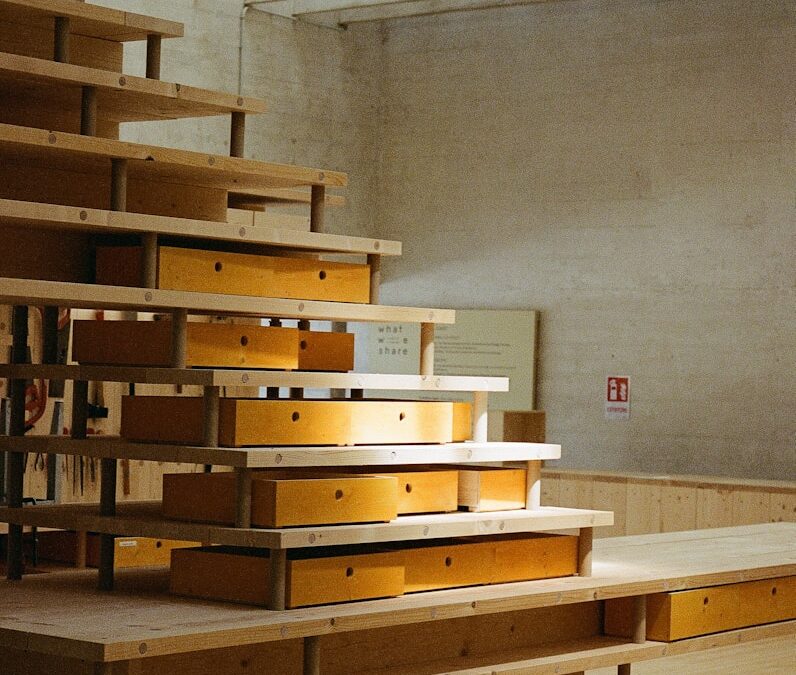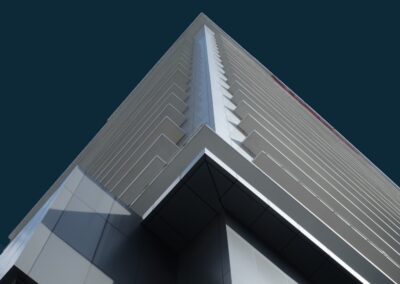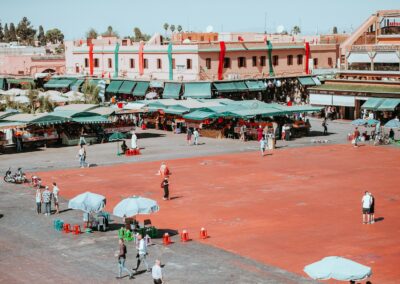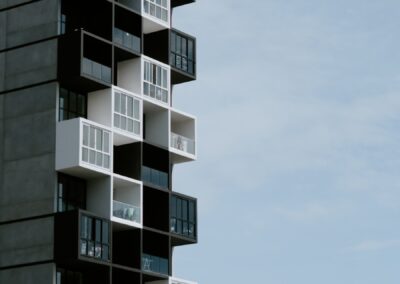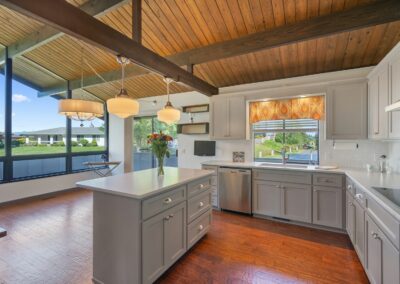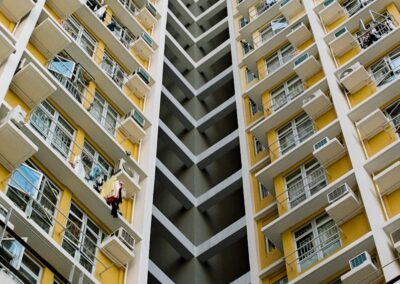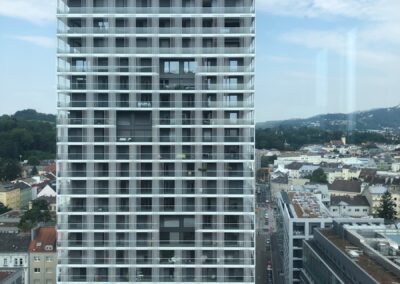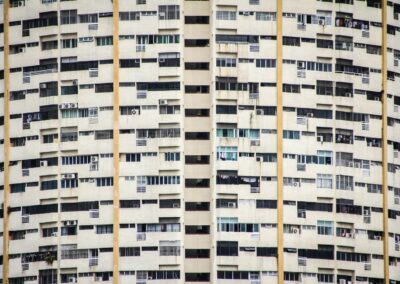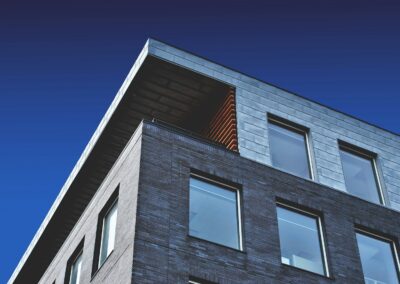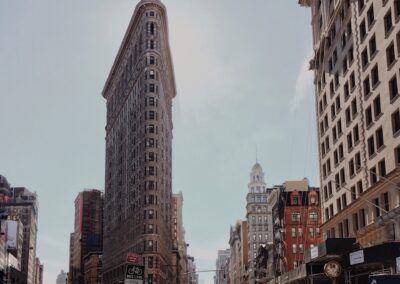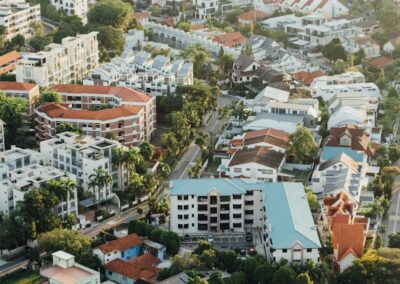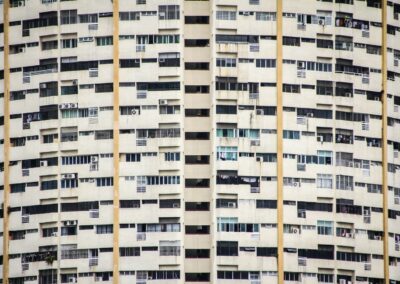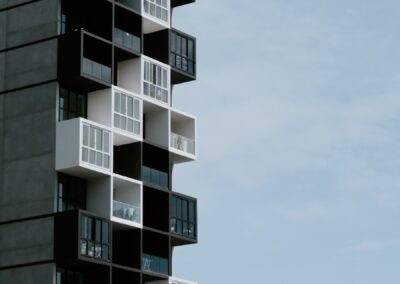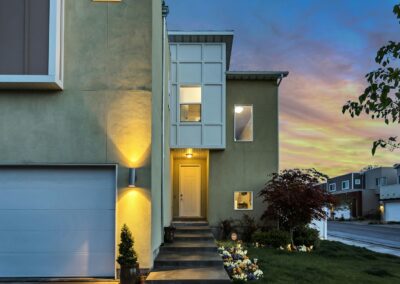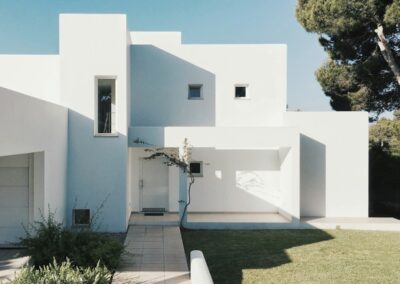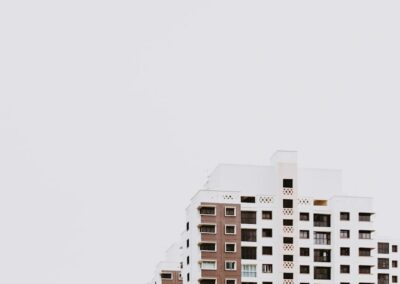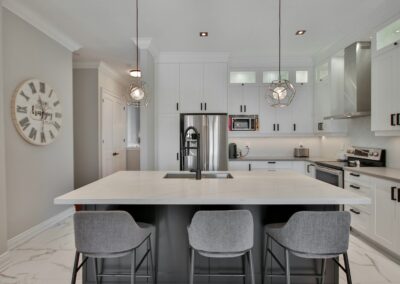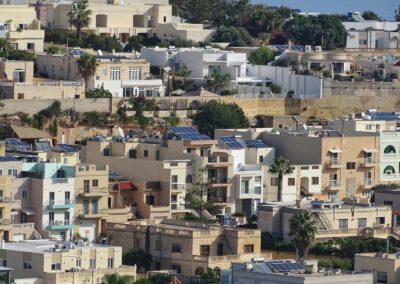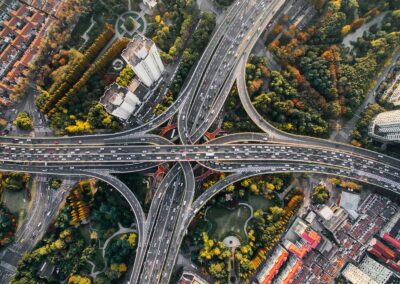Innovative Solutions for Sustainable Urban Development
Understanding the Economic Benefits of Modular Housing
The adoption of modular housing as a solution to affordable housing shortages offers numerous economic advantages, especially in rapidly urbanizing regions such as Saudi Arabia and the UAE. Modular housing involves the prefabrication of housing units in a factory setting, which are then transported and assembled on-site. This method significantly reduces construction time and costs, providing a viable solution to the growing demand for affordable housing in urban areas.
In Saudi Arabia, the Vision 2030 initiative prioritizes innovative urban development and sustainable housing solutions. Modular housing aligns perfectly with these goals by enabling the construction of high-quality, cost-effective housing units at a rapid pace. The prefabrication process allows for greater control over construction quality and minimizes waste, resulting in lower overall costs. Additionally, the reduced construction time means that housing projects can be completed more quickly, addressing the urgent need for affordable housing in cities like Riyadh.
Dubai, known for its ambitious real estate projects, is also exploring the potential of modular housing to address its urban housing challenges. The city’s rapid population growth has led to increased demand for affordable housing solutions. Modular housing offers a scalable and efficient way to meet this demand. By leveraging advanced construction technologies and materials, Dubai can create sustainable and cost-effective housing units that cater to a diverse population. This approach not only addresses housing shortages but also supports the city’s commitment to sustainable development and environmental stewardship.
Reducing Construction Costs and Time
One of the most significant economic advantages of modular housing is the reduction in construction costs and time. Traditional construction methods can be time-consuming and costly due to factors such as weather delays, labor shortages, and material waste. In contrast, modular housing involves the off-site fabrication of housing units in controlled factory environments. This process minimizes delays and allows for efficient use of materials, resulting in significant cost savings.
In Riyadh, modular housing can play a crucial role in reducing the financial burden of urban development. By shortening construction timelines and lowering labor costs, modular housing projects can be completed more affordably and efficiently. This approach is particularly beneficial for large-scale housing developments aimed at providing affordable homes for low- and middle-income residents. The cost savings achieved through modular construction can be passed on to residents in the form of lower housing prices, making homeownership more accessible.
Dubai’s real estate market can also benefit from the cost efficiencies associated with modular housing. The city’s ambitious urban development plans require innovative solutions to manage costs and meet tight project deadlines. Modular housing allows developers to streamline construction processes and reduce overhead expenses. By adopting modular construction techniques, Dubai can enhance the affordability and accessibility of housing, supporting the city’s vision of creating inclusive and sustainable urban communities.
Promoting Sustainable and Scalable Housing Solutions
The economic advantages of modular housing extend beyond cost savings and efficiency. Modular construction promotes sustainability and scalability, making it an ideal solution for addressing affordable housing shortages in urban areas. The prefabrication process allows for the use of eco-friendly materials and energy-efficient building practices, reducing the environmental impact of construction projects.
In Saudi Arabia, modular housing supports the country’s commitment to environmental sustainability. By utilizing green building materials and technologies, modular housing projects can achieve higher energy efficiency and lower carbon emissions compared to traditional construction methods. This approach aligns with the goals of Vision 2030, which emphasizes the importance of sustainable urban development. Modular housing not only provides affordable homes but also contributes to the overall environmental health of urban areas.
Dubai’s urban planning initiatives also prioritize sustainability and scalability. Modular housing offers a flexible and adaptable solution to meet the city’s evolving housing needs. The modular construction process allows for the rapid expansion of housing developments, making it easier to scale projects based on demand. Additionally, modular housing units can be designed to incorporate renewable energy sources, water-saving technologies, and other sustainable features. This holistic approach to housing development enhances the long-term viability and resilience of urban communities.
Conclusion
Modular housing presents a compelling solution to the affordable housing shortages in urban areas, offering significant economic advantages. By reducing construction costs and time, promoting sustainability, and providing scalable housing solutions, modular housing addresses the urgent need for affordable homes in rapidly growing cities like Riyadh and Dubai. Through strategic planning, technological innovation, and a commitment to sustainability, modular housing can play a vital role in shaping the future of urban development in Saudi Arabia, the UAE, and beyond.
#EconomicAdvantagesOfModularHousing #AffordableHousingSolutions #UrbanDevelopment #RiyadhHousingInnovation #DubaiSustainableConstruction #SaudiArabiaModularHomes #UAEEUrbanHousing #AIInConstruction #BlockchainInRealEstate #TheMetaverseInHousingDesign #GenerativeAIInArchitecture #BusinessSuccessInRealEstate #LeadershipInUrbanDevelopment #ProjectManagementInModularConstruction

